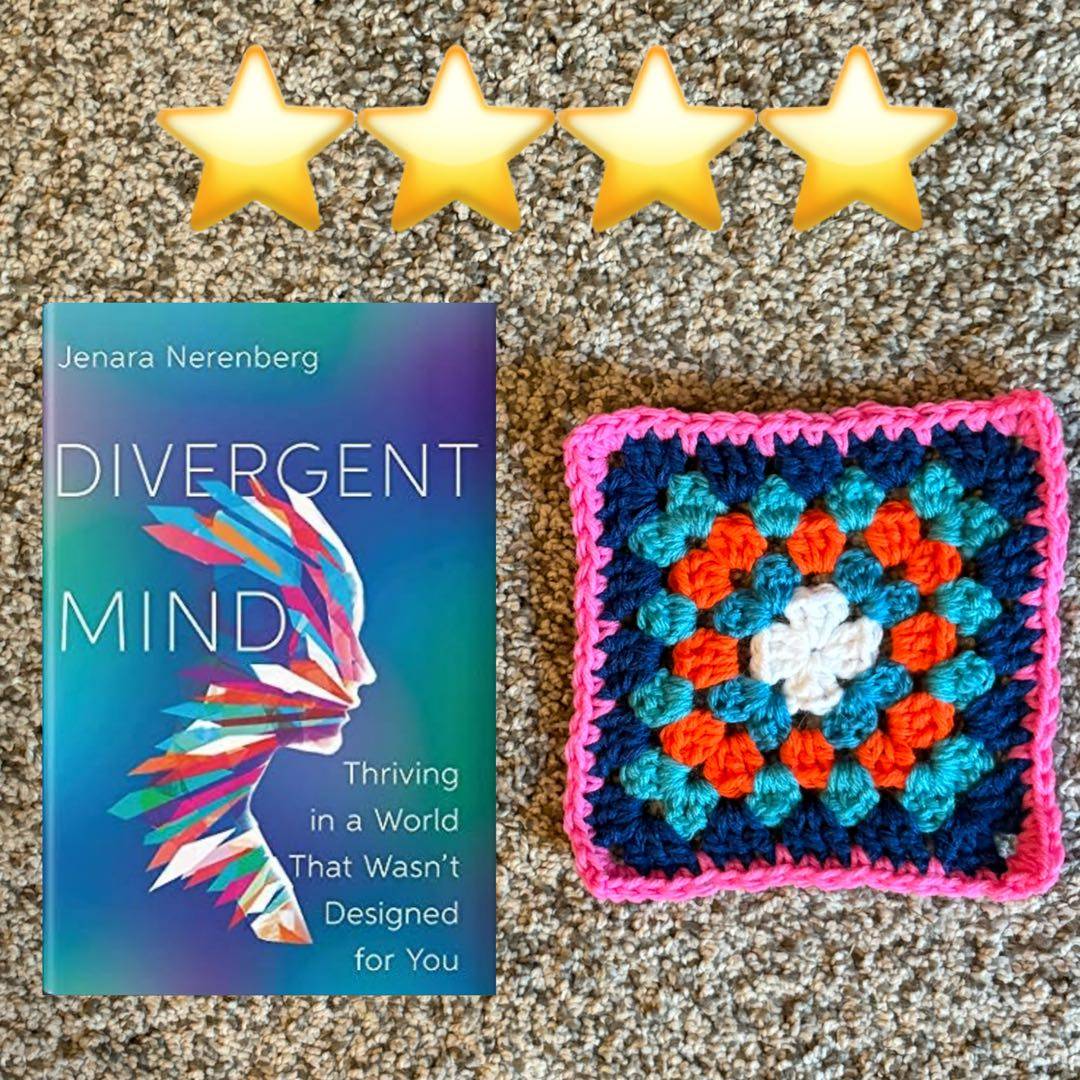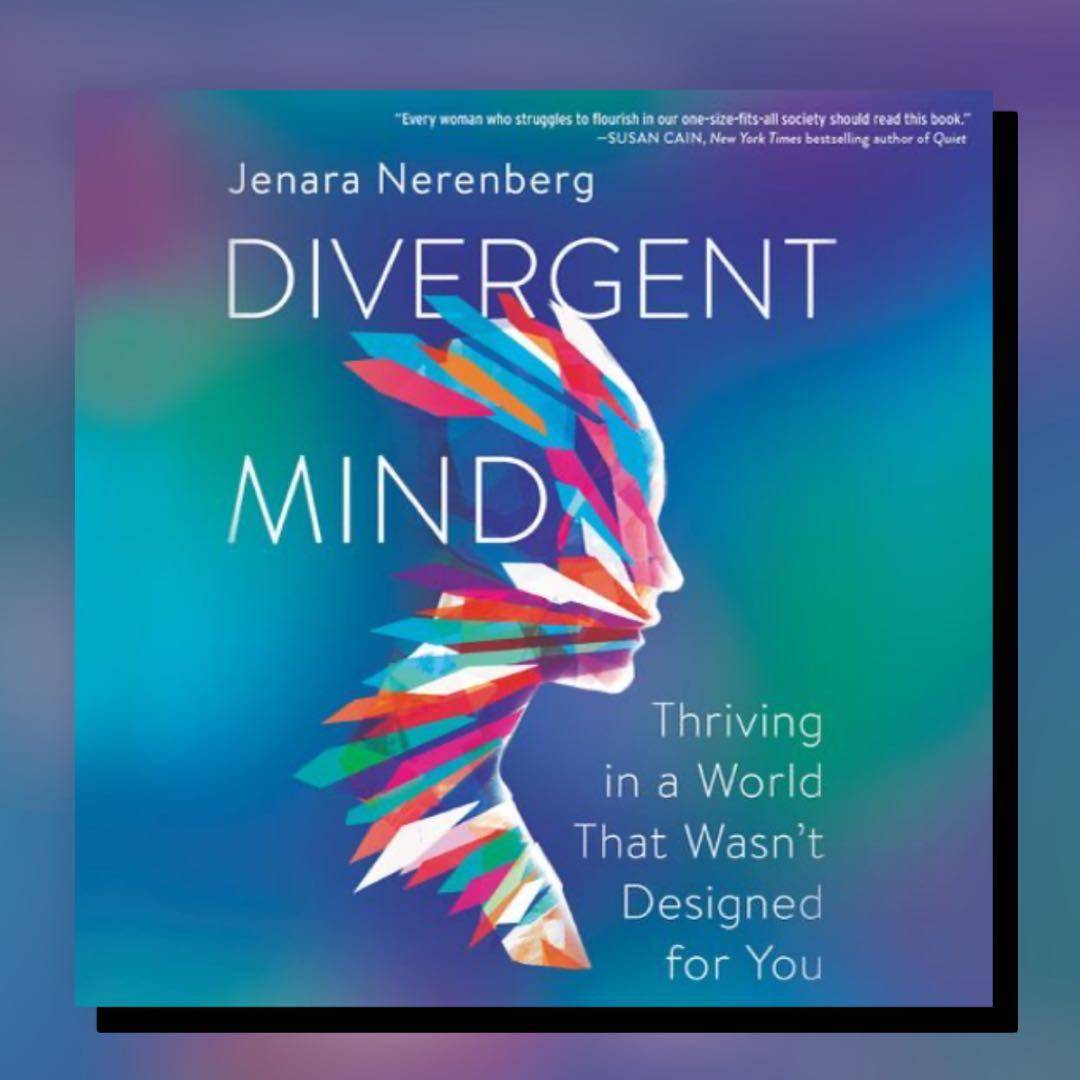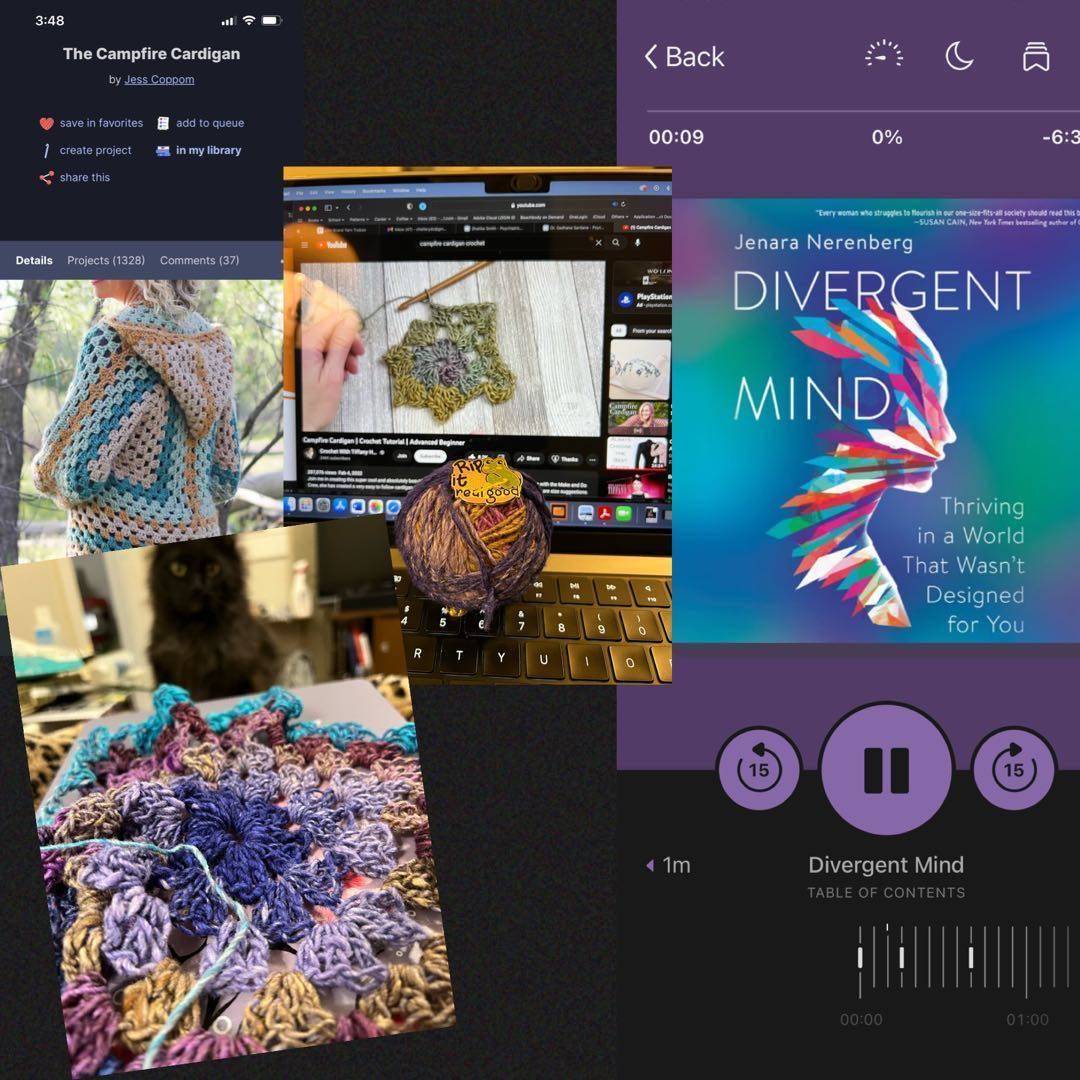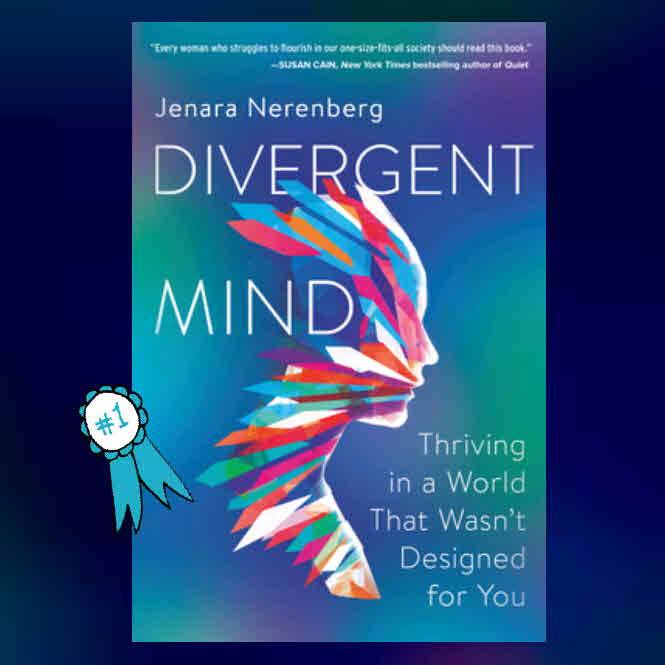
A reread (re-listen) for me. I felt I needed it.
#bookblanket #readingblanket2025

A reread (re-listen) for me. I felt I needed it.
#bookblanket #readingblanket2025

I attended a training recently on working with neurodivergent colleagues and decided to listen to this book for a little more insight. It talks about different types of neurodiversities and highlights women in these categories, which I really appreciated as it‘s always been a male dominated study. This book was enlightening and I had some takeaways and see many traits in my immediate family which is not surprising at all.

I have a case of start-itus AND insomnia, so I‘m now #audiocrocheting a hooded hexagon cardigan.
It will be my first cardigan and my first crocheted piece of clothing.
Hades is silently judging me for starting ANOTHER project this week.
#litsycrafters

For neurodivergent (autism, ADHD, HSP, SPD), non-male people. A key trait, sensitivity, has been overlooked because it's associated w/women, a population underrepresented in medical studies until 1990s (Saini). Those of us diagnosed later in life, it usually follows a massive breakdown or the verge of suicide. We must stop pathologizing differences. Billions of brains on this planet, we do not need to conform to the "one true model" of existence.
This offers a completely new way of seeing and being. Here for it. Excited to see this paradigm grow.

I really liked this book. After reading two other books that were very basic, introductory level books on neurodivergence (one of which heavily pathologized it and the other of which was not very useful), this book felt like a breath of fresh air. The author approaches neurodiversity from a positive perspective and highlights both her own story and the stories of other neurodivergent women.